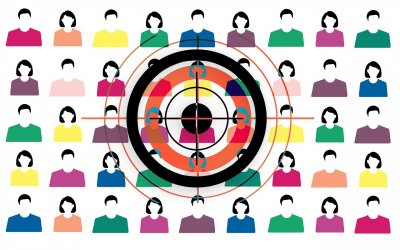My last blog post talked about the effects of the coronavirus that appeared on Sunday, before Monday’s fall in the market. Now, I want to look at the impact if the coronavirus comes to the U.S., as the CDC expects.
Slowing the Spread
Listening to a virologist today, he said that if the virus comes, the way to slow the spread is:
-
Stay home if you are sick;
-
Keep kids at home if they are sick;
-
Avoid unnecessary travel; and
-
If it gets worse, stop large gatherings of people, i.e., sporting events, conferences, and church congregations.
-
Also, firms should look at ways to allow workers to telecommute.
All of these suggestions are fine in principle but unlikely to be effective immediately due to the nature of the U.S., namely:
-
No social net, so people are unlikely to stay home if sick. Under many changes to SNAP and other programs, people who don’t work are ineligible for benefits, so they will keep working as long as they can.
-
Inadequate health insurance for many due to the current administration’s rollback of the Affordable Care Act regulations and allowance of so-called “junk plans” in the market, with the result that many poor people will not get tested due to the costs;
-
No security net for parents whose kids are sick and cannot afford to stay home and look after them. They will send their kids to school because their children need food and they need to work.
-
No security net for many gig workers, i.e., Uber drivers, who are will see a fall in income as travel decreases. If the virus transferable through surfaces, this will be even worse.
-
No social net for many workers in the travel industry, i.e., hotel employees, wait staff at restaurants, and those at conference venues as travel expenditure falls.
Therefore, sick people will stop working only when companies shut their doors. Many firms are unlikely to institute testing due to cost concerns; thus, I expect many firms to operate until the number of sick people is so high that the firm has to close.
Thus, I see the spread being higher and faster than in China and Italy, which have instituted significant measures to stop human contact. If the government does implement the type of action that China and Italy have, we can expect a fall in incomes, an increase in bankruptcies, and more social unrest.
Supply Chain Disruption
A virus in the U.S., for the reasons above, would further disrupt the supply chain as iI discussed in my previous post and by others. Companies would get into issues, due to:
-
No Products due to a lack of raw materials, a lack of workers to build products, or in the travel industry, no customers.
-
No Sales. The end customer may no be purchasing as they cannot use the products as they have too much inventory or just a reduction in demand as workers stay home.
The effect of this would be to slow sales, but more importantly, slow down cash flow and thus cause far more significant damage. Companies don’t go out of business because they lose money; they go out of business because they run out of cash. Several articles have mentioned the precarious financial position of low credit corporate borrowers. If cash flow dries up, we can expect many of these companies to fail, leading to a domino effect on healthier ones, as we saw in 2008. Also, many over-leveraged companies would have to implement drastic measures to survive; thus, we can expect more layoffs and fewer purchases. None of this bodes well for the economy. Given that Goldman has dropped its GDP forecast to 1.2% for the quarter, we could be negative territory as global demand slows, and more disruption of global supply chains continues.
The Effect on the Medical Establishment
Overall, from what I have read, I don’t see many people dying given the fatality rate of coronavirus. However, if there is a widespread infection, hospitals would be overwhelmed due to a lack of investment and preparedness in them over the decades. Also, with many insurance policies providing limited coverage, the medical facilities could face significant uncollectable expenses, further damaging them. Leading to a further deterioration in the medical establishment, especially in rural areas.
None of this bodes well for slowing the spread or helping the economy recover quickly. However, if there is underinvestment in medical facilities, cuts to emergency pandemic response teams, and no security nets for the poorest in the economy, as we saw in 2008, the bill always comes due, and we hate paying it.
Copyright (c) 2020, Marc A. Borrelli
Recent Posts
EOS is just that, an Operating System
The EOS Model® provides a useful foundation for businesses, but it falls short in addressing key aspects of creating an growth. By incorporating additional elements from the Gravitas 7 Attributes of Agile Growth® model, businesses can create a more comprehensive system that promotes growth while maintaining smooth operations. Focusing on Leadership, Strategy, Execution, Customer, Profit, Systems, and Talent, the 7 Attributes of Agile Growth® offer a more encompassing approach to achieving success.
What has COVID done to Company Culture?
COVID has affected everyone. However, companies need to examine if they have lived their core values during COVID, how they are reinforcing them in a WFH environment, and especially with the onboarding of new hires.
Profit ≠ Cash Flow
Knowing how much cash you generate is essential for planning for growth. Too many companies don’t know and when they grow they find they are continually running out of cash. Understand your cash flow generation and how to improve it through improvements in your Cash Conversion Cycle and using the Power of One.
What Are Your Critical and Counter Critical Numbers?
The key to achieving long term goals is to define short term goals that lead you there. Focusing those short term goals around a key metric is essential. However, ensure that the metric will not lead other areas astray by having an appropriate counter critical metric act as a counter balance.
Rethinking ‘Family’ Culture in Business: Fostering Performance and Success
Explore the importance of company culture and the potential pitfalls of adopting a “Family” culture in organizations. Learn how to foster a high-performance culture while maintaining key family values and discover success factors for family businesses. Rethink the “Family” culture concept and create a thriving environment for your organization.
Do You Truly Know Your Core Customer?
Knowing the profit of your core customers is key to building a growth model. Many companies have identified core customers that are generating a sub-optimal profit and so they cannot realize the profits they seek. Identifying the correct core customer allows you to generate profits and often operate in “Blue Ocean.”
The Spectacular Rise and Fall of the European Super League
The European Super League (ESL) collapsed within 48 hours of its announcement due to hubris, a lack of value creation, and fan backlash. The founders’ arrogance led them to disregard European football’s deep-rooted traditions and culture. At the same time, the focus on wealthy club owners instead of merit undermined the essence of the competition. The fierce backlash from fans, who felt betrayed by their clubs, demonstrated the importance of prioritizing supporters’ interests in football.
When Should I Sell My Business?
Many business owners want to sell at the top of the market. However, market timing is tough. Is this the best strategy? Probably not.
Does Your Financial Model Drive Growth?
Working with many companies looking to grow, I am always surprised how many have not built a financial model that drives growth. I have mentioned before a financial model that drives growth? Here I am basing on Jim Collin's Profit/X, which he laid out in Good to...
COVID = Caught Inside
As we emerge from COVID, the current employment environment makes me think of a surfing concept: “Being Caught Inside When a Big Set Comes Through.” Basically, the phrase refers to when you paddle like crazy to escape the crash of one wave, only to find that the next wave in the set is even bigger—and you’re exhausted. 2020 was the first wave, leaving us tired and low. But looking forward, there are major challenges looming on the horizon as business picks up in 2021. You are already asking a lot of your employees, who are working flat out and dealing with stress until you are able to hire more. But everyone is looking for employees right now, and hiring and retention for your organization is growing more difficult.












Проверка USDT на чистоту
Тестирование USDT в нетронутость: Как обезопасить собственные криптовалютные активы
Каждый день все больше людей придают важность на секурити личных криптовалютных активов. День ото дня дельцы разрабатывают новые схемы кражи цифровых денег, и держатели цифровой валюты становятся жертвами своих подстав. Один подходов сбережения становится проверка кошельков в наличие нелегальных финансов.
С какой целью это важно?
Преимущественно, для того чтобы защитить свои активы от шарлатанов и также похищенных монет. Многие вкладчики сталкиваются с потенциальной угрозой потери своих средств из-за мошеннических механизмов или кражей. Осмотр кошельков позволяет обнаружить подозрительные действия или предотвратить возможные потери.
Что наша команда предлагаем?
Мы предлагаем сервис анализа электронных кошельков а также транзакций для обнаружения источника средств. Наша платформа исследует данные для обнаружения противозаконных операций или проценки угрозы для вашего портфеля. Вследствие данной проверке, вы сможете избегнуть проблем с регулированием а также предохранить себя от участия в нелегальных операциях.
Как это действует?
Наша фирма работаем с лучшими проверочными агентствами, вроде Halborn, для того чтобы обеспечить точность наших проверок. Мы используем передовые технологии для выявления потенциально опасных сделок. Ваши данные обрабатываются и хранятся согласно с высокими нормами безопасности и конфиденциальности.
Каким образом проверить личные Tether в нетронутость?
Если вам нужно убедиться, что ваша Tether-бумажники нетронуты, наш сервис обеспечивает бесплатное тестирование первых пяти кошельков. Легко введите местоположение собственного кошелька на на нашем веб-сайте, и также мы предоставим вам полную информацию доклад об его положении.
Охраняйте вашими активы уже сегодня!
Не подвергайте риску подвергнуться шарлатанов или попадать в неприятную обстановку из-за незаконных операций. Обратитесь к нашей команде, для того чтобы защитить свои электронные финансовые ресурсы и предотвратить сложностей. Сделайте первый шаг к безопасности криптовалютного портфеля уже сегодня!
usdt и отмывание
Тетер – это неизменная криптовалюта, привязанная к фиатной валюте, например USD. Данное обстоятельство позволяет данную криптовалюту особенно привлекательной у инвесторов, так как она предоставляет надежность курса в в условиях неустойчивости криптовалютного рынка. Тем не менее, также как и любая другая вид криптовалюты, USDT подвергается опасности использования для скрытия происхождения средств и финансирования противоправных операций.
Промывка средств посредством криптовалюты переходит в все более обычным методом с целью скрытия происхождения средств. Используя различные методы, преступники могут стараться легализовывать незаконно добытые фонды посредством сервисы обмена криптовалют или смешиватели, чтобы совершить происхождение менее понятным.
Именно для этой цели, анализ USDT на чистоту оказывается весьма важной практикой защиты для того чтобы участников цифровых валют. Имеются специализированные услуги, какие проводят проверку транзакций и счетов, для того чтобы идентифицировать ненормальные операции и нелегальные источники средств. Такие сервисы способствуют участникам избежать непреднамеренного участия в финансирование преступных акций и предотвратить блокировку счетов со со стороны сторонних контролирующих органов.
Проверка USDT на чистоту также как и помогает обезопасить себя от убытков. Участники могут быть убеждены что их финансовые ресурсы не связаны с нелегальными транзакциями, что в свою очередь уменьшает вероятность блокировки аккаунта или конфискации средств.
Таким образом, в условиях современности возрастающей степени сложности среды криптовалют необходимо принимать действия для гарантирования безопасности и надежности своих финансовых ресурсов. Проверка USDT на чистоту с использованием специализированных сервисов является важной одним из методов противодействия отмывания денег, гарантируя участникам цифровых валют дополнительную защиту и защиты.
Купить компрессоры https://kompressoroil.ru/ по самым выгодным ценам в Москве в интернет-магазине. Широкий выбор компрессоров. В каталоге можно ознакомиться с ценами, отзывами, фотографиями и подробными характеристиками компрессоров.
cá cược thể thao
We’ll buy or invest in your site and you Investment/Buying ranging from $50,000 to $500,000, depending on stage, market volume, market share buy-site.pages.dev
https://rgames.org/cup-c1/
Backlinks seo
Efficient Hyperlinks in Blogs and Remarks: Increase Your SEO
Hyperlinks are critical for boosting search engine rankings and enhancing website presence. By integrating links into weblogs and remarks smartly, they can significantly boost targeted traffic and SEO performance.
Adhering to Search Engine Algorithms
Today’s backlink placement methods are finely tuned to line up with search engine algorithms, which now emphasize website link high quality and relevance. This ensures that hyperlinks are not just numerous but meaningful, directing end users to useful and pertinent content material. Website owners should focus on integrating hyperlinks that are contextually appropriate and improve the general content good quality.
Advantages of Making use of Clean Donor Bases
Using up-to-date contributor bases for backlinks, like those managed by Alex, provides substantial benefits. These bases are regularly refreshed and consist of unmoderated sites that don’t attract complaints, making sure the links put are both impactful and agreeable. This strategy helps in sustaining the efficacy of backlinks without the risks connected with moderated or troublesome sources.
Only Sanctioned Resources
All donor sites used are approved, keeping away from legal pitfalls and sticking to digital marketing standards. This commitment to making use of only sanctioned resources ensures that each backlink is legitimate and trustworthy, thereby constructing reliability and trustworthiness in your digital existence.
SEO Impact
Skillfully placed backlinks in blogs and remarks provide more than just SEO advantages—they enhance user experience by linking to pertinent and high-quality articles. This strategy not only meets search engine criteria but also engages end users, leading to better traffic and enhanced online engagement.
In essence, the right backlink technique, particularly one that utilizes refreshing and trustworthy donor bases like Alex’s, can change your SEO efforts. By focusing on good quality over quantity and adhering to the most recent criteria, you can ensure your backlinks are both potent and effective.
Продвижение сайтов в поисковых системах https://seoshnikiguru.ru/ с гарантией результата. SEO продвижение сайтов в ТОП-10 Яндекс, заказать поисковое сео продвижение, раскрутка веб сайта в Москве.
九州娛樂城
usdt не чистое
Тестирование USDT в нетронутость: Каковым способом обезопасить свои криптовалютные состояния
Каждый день все больше индивидуумов обращают внимание для надежность собственных криптовалютных активов. Постоянно дельцы предлагают новые способы хищения криптовалютных средств, а также держатели электронной валюты оказываются пострадавшими их подстав. Один способов сбережения становится проверка бумажников на наличие нелегальных денег.
Зачем это важно?
Прежде всего, с тем чтобы защитить свои средства от шарлатанов или украденных монет. Многие специалисты сталкиваются с вероятностью потери своих средств по причине мошеннических планов или краж. Проверка бумажников помогает выявить сомнительные операции и также предотвратить возможные потери.
Что мы предлагаем?
Мы предлагаем подход тестирования криптовалютных кошельков а также транзакций для выявления источника денег. Наша технология анализирует данные для обнаружения нелегальных действий а также оценки риска вашего портфеля. За счет этой проверке, вы сможете избежать недочетов с регуляторами и также защитить себя от участия в незаконных операциях.
Как это работает?
Мы работаем с передовыми проверочными фирмами, такими как Halborn, чтобы обеспечить точность наших проверок. Наша команда используем современные технологии для выявления потенциально опасных транзакций. Ваши данные обрабатываются и хранятся в соответствии с высокими нормами безопасности и конфиденциальности.
Как проверить личные USDT в прозрачность?
В случае если вы желаете убедиться, что ваша Tether-кошельки прозрачны, наш сервис предоставляет бесплатную проверку первых пяти бумажников. Легко вбейте местоположение личного кошелька на на нашем веб-сайте, или мы предложим вам полную информацию доклад о его статусе.
Гарантируйте безопасность для свои активы сегодня же!
Не рискуйте подвергнуться мошенников или попасть в неблагоприятную обстановку вследствие незаконных операций. Обратитесь за помощью к нашей команде, для того чтобы обезопасить ваши криптовалютные активы и предотвратить сложностей. Предпримите первый шаг к безопасности вашего криптовалютного портфеля прямо сейчас!
Заказать SEO продвижение сайтов https://seoshnikigo.ru/ в ТОП поисковых систем Яндекс и Google в Москве, оплата за результат и по факту. Кейсы, стратегии продвижения, скидки и акции, индивидуальный подход
Купить квартиру в Казани https://novostroyzhilie.ru/ от застройщика. Планировки и цены трехкомнатных, двухкомнатных и однокомнатных квартир в новостройке.
טלגראס תל אביב
טלגראס כיוונים: המכון השלם לקניית קנאביס דרך המשלוח
טלגראס כיוונים היא אתר רשמי מידע ומדריכי לסחר ב שרף באמצעות התוכנה הנפוצה מסר.
האתר רשמי מספק את כל המידע הקישורים לאתרים והמידע העדכוני לקבוצות וערוצים המומלצים מומלצות לסחר ב קנאביסין בהמסר במדינה.
כמו למעשה, האתר הרשמי מספקת הדרכה מפורטת לאיך להתארגן בהשרף ולהשיג שרף בקלות הזמנה ובמהירות מירבית.
בעזרת המדריך, גם כן משתמשי חדשים בתחום יוכלו להתחיל להחיים ההגראס בהטלגרמה בצורה מוגנת ומוגנת.
ההרובוט של טלגראס מאפשר להמשתמשים לבצע פעולות שונות וצבעוניות כגון השקת קנאביס, קבלת תמיכה סיוע מקצועי, בדיקת והוספת ביקורות על פריטים. כל זאת בפניות נוחה לשימוש ופשוטה דרך התוכנה.
כאשר כשם הדבר באמצעים שלמות, הקנאביס משתמשת בשיטות מוכרות כמו מזומנים, כרטיסי האשראי של אשראי ומטבע דיגיטלי. חיוני להדגש כי קיים לבדוק ולוודא את ההנחיות והחוקים המקומיים במדינה שלך ללפני ביצוע רכישה.
הטלגרמה מציע יתרונות מרכזיים כמו הגנת הפרטיות והגנה מוגברים מאוד, התקשורת מהירה וגמישות גבוהה. בנוסף, הוא מאפשר כניסה להאוכלוסיה עולמית רחבה ומציע מגוון של תכונות ויכולות.
בסיכום, טלגראס מדריכים היא המקום הטוב ללמצוא את כל המידע והקישורים לרכישת פרחי קנאביס בפניות מהירה, בבטוחה ונוחה מאוד דרך המסר.
Раскрутка сайтов https://seoshnikigood.ru/ в ТОП в городе Москва. Используем эффективные методы, работаем практически с любым бюджетом. Выгодные условия, индивидуальный подход.
Продажа квартир https://novostroykihome.ru/ и недвижимости в Казани по выгодной стоимости на официальном сайте застройщика. Жилье в Казани: помощь в подборе и покупке новых квартир, цены за квадратный метр, фото, планировки.
הימורים מקוונים הם חוויה מרגשת ופופולרי ביותר בעידן הדיגיטלי, שמאגרת מיליונים אנשים מכל
רחבי העולם. ההימורים המקוונים מתרחשים בהתאם ל אירועים ספורטיים, תוצאות פוליטיות ואפילו תוצאות מזג האוויר ונושאים נוספים. אתרים ל הימורים הווירטואליים מקריאים פוטנציאליים את מי שמעוניין להמר על תוצאות אפשריות ולהנות חוויות ייחודיות ומרתקות.
ההימורים המקוונים הם כבר חלק מתרבות החברה מזמן רב והיום הם לא רק חלק חשוב מהפעילות הכלכלית והתרבותית, אלא אף מספקים תשואות וחוויות מרתקות. משום שהם נגישים לכולם ונוחים לשימוש, הם מובילים את כולם ליהנות מהניסיון ולהנות מכל הניצחונות והפרסים בכל זמן ובכל מקום.
טכנולוגיות דיגיטליות והימורים הפכו להיות הפופולריים ביותר בין האהובות והנפוצות. מיליונים אנשים מכל רחבי העולם מעוניינים בהימורים, כוללים הימורי ספורט. הימורים מקוונים מציעים למשתתפים חוויה מהנה ומרגשת, המתאימה לכולם בכל זמן ובכל מקום.
וכן מה עוד אתה מחכה? הצטרף עכשיו והתחיל ליהנות מכל רגע ורגע שהימורים מקוונים מציעים.
Sure, here’s the text with spin syntax applied:
Hyperlink Structure
After multiple updates to the G search algorithm, it is essential to utilize different strategies for ranking.
Today there is a way to capture the focus of search engines to your site with the support of inbound links.
Backlinks are not only an successful advertising resource but they also have natural visitors, straight sales from these sources probably will not be, but transitions will be, and it is beneficial traffic that we also receive.
What in the end we get at the end result:
We show search engines site through links.
Prluuchayut organic click-throughs to the site and it is also a sign to search engines that the resource is used by users.
How we show search engines that the site is liquid:
Links do to the principal page where the main information.
We make backlinks through redirects trusted sites.
The most SIGNIFICANT we place the site on sites analyzers separate tool, the site goes into the cache of these analyzers, then the acquired links we place as redirects on blogs, forums, comment sections. This crucial action shows search engines the site map as analysis tool sites present all information about sites with all keywords and headlines and it is very GOOD.
All details about our services is on the website!
Написание курсовых работ https://courseworkskill.ru/ на заказ быстро, качественно, недорого. Сколько стоит заказать курсовую работу. Поручите написание курсовой работы профессионалам.
Наша компания предлагает высококачественные услуги Разработка и рытье котлованов Алматы Мы обеспечиваем надежное и профессиональное оборудование для выполнения различных земляных работ на строительных площадках и других объектах. Наш опытный персонал и гибкие условия аренды делают нас надежным партнером для вашего проекта.
Квартиры с ремонтом в новостройках https://kupitkvartiruseychas.ru/ Казани по ценам от застройщика.Лидер по строительству и продажам жилой и коммерческой недвижимости.
link building
Creating hyperlinks is simply as efficient at present, only the tools to operate in this area have got shifted.
You can find several options to backlinks, we utilize some of them, and these methods work and have already been tried by our experts and our clients.
Lately we conducted an experiment and it turned out that low-frequency queries from just one domain ranking effectively in search results, and it doesn’t need to be your own domain name, it is possible to use social media from web2.0 collection for this.
It additionally possible to partly transfer mass through web page redirects, providing a diverse link profile.
Head over to our very own website where our offerings are presented with thorough overview.
Почему посудомоечная машина https://kulbar.ru/2024/01/21/pochemu-posudomoechnaya-mashina-eto-neobhodimost-dlya-sovremennogo-doma/ необходимость для современного дома? Как использовать и как выбрать посудомойку?
creating articles
Creating unique articles on Platform and Telegraph, why it is necessary:
Created article on these resources is enhanced ranked on low-frequency queries, which is very important to get organic traffic.
We get:
natural traffic from search engines.
organic traffic from the inner rendition of the medium.
The webpage to which the article refers gets a link that is valuable and increases the ranking of the webpage to which the article refers.
Articles can be made in any amount and choose all less frequent queries on your topic.
Medium pages are indexed by search engines very well.
Telegraph pages need to be indexed individually indexer and at the same time after indexing they sometimes occupy spots higher in the search algorithms than the medium, these two platforms are very beneficial for getting visitors.
Here is a hyperlink to our services where we provide creation, indexing of sites, articles, pages and more.
Купить квартиру https://newflatsale.ru/ в новостройке: однокомнатную, двухкомнатную, трехкомнатную в жилом комплексе в рассрочку, ипотеку, мат. капитал от застройщика.
Продажа квартир в Казани https://kupitkvartiruzdes.ru/ от застройщика. Большой выбор квартир. Возможность купить онлайн. Квартиры с дизайнерской отделкой.
rosuvastatin online pat – pravastatin fact caduet yard
курс по экселю – Обучение с гарантиями государственного университета.
vảy gà
Купить квартиру в новостройке https://newhomesale.ru/ в Казани. Продажа новой недвижимости в ЖК новостройках по ценам от застройщика.
радиаторы отопления подходят как для частных домов, так и для квартир в многоэтажках.